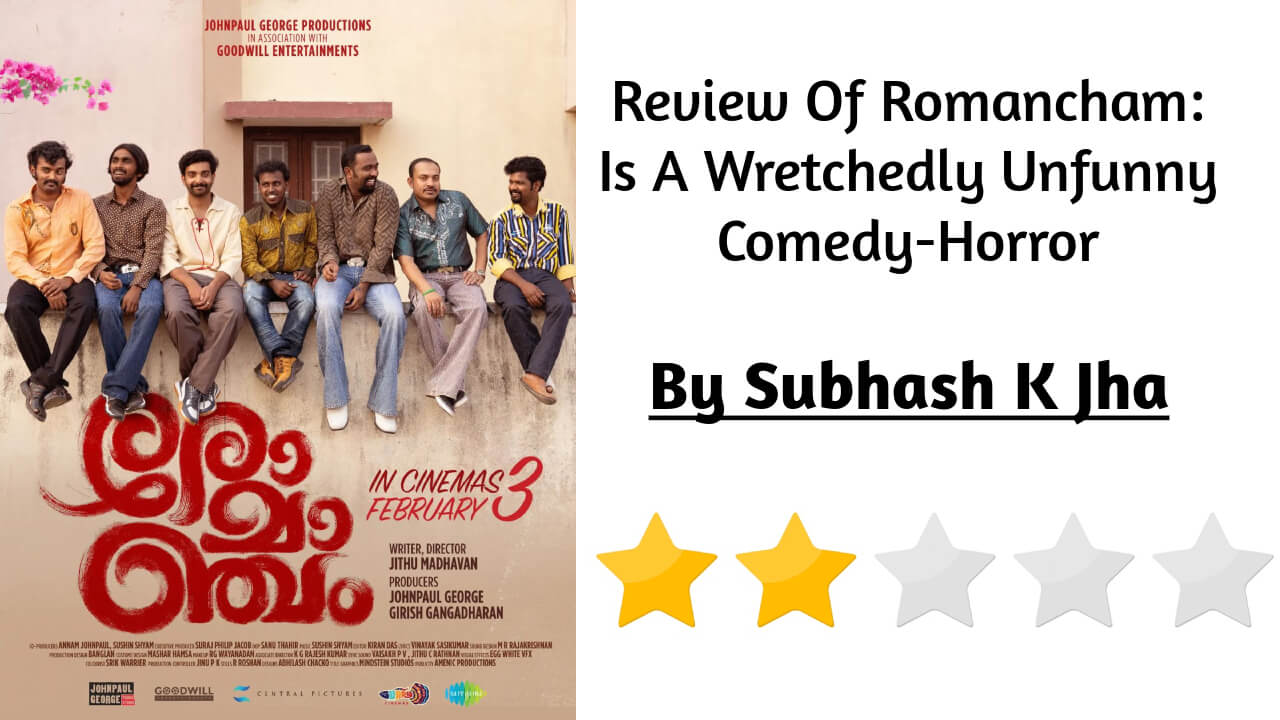Romancham (Malayalam)
Rating: **
Cast: Arjun Ashokan, Soubin Shahir, Sajin, Siju Sunny, Pooja Mohanraj, Adithya Bhaskar
I have never understood the concept behind the horror-comedy genre. Either one is scared or amused. How can both co-exist? Apparently they can in films like Stree, Roohi and Bhediya. A new Malayalam film Romancham tries to be funny and scary at the same time. It fails on both counts. Not for the want of trying, I might add.
There are some skilled actors at work here. But the material given to them lacks bite. It’s more about trying to be sassy and cocky than genuine laughs. Talented Soubhin Sahir is seen in a hospital at the start. Jibin has gone blind(how, we shall know eventually) . He pisses of a nurse by pretending to see more than he actually can.
In actuality we undergo the same feeling of annoyance as writer-director Jeethu Madhavan tries to be far more woke than he actually is.His concept of room mating is more K Balachander than Farhan Ahktar. Madhavan’s storytelling strains for effect while trying to be calm and spooky. The comic centrality comes from an Ouija board which the seven friends sharing the same house use to connect with a spirit named Anamika.
The connect with the otherworld is meant to be eerie. And the humour comes from ‘Anamika’ telling the undisclosed truth about her visitors. For instance a man is told his uncle is his real father. His mortification at thus being exposed in public is occasion for guffaws and chuckles. There are homilies and warning on using black magic without proper supervision, although I am unable to figure out why such occulist practices should be given any kind of credence at all.
Romancham seems to believe there is humour in the dark zone.And there probably is.We need a more filmmaker to dig it out of this surface-level frivolity. Tragically the laughter is washed away in staged attempts at brotherly bonhomie.
The actors are good and there is a reasonable quotient of camaraderie among them. But the script is constantly biting the actors’ exuberance in the posterior, serving then one unfunny episode after another.
At one point a North Indian migrant comes to confront one of the housemates for stalking his daughter. The migrant speaks in Hindi, and one of the house mates defends his friends in Hindi. This is sensible writing. But also very communally biased. In South Indian films the intruders or trouble makers are always from the Hindi belt.
Cocooned in its community prattle, Romancham seems like a call to end aimlessness among the jobless. It seems the seven workless worthless characters here have much time to kill.
We don’t.


